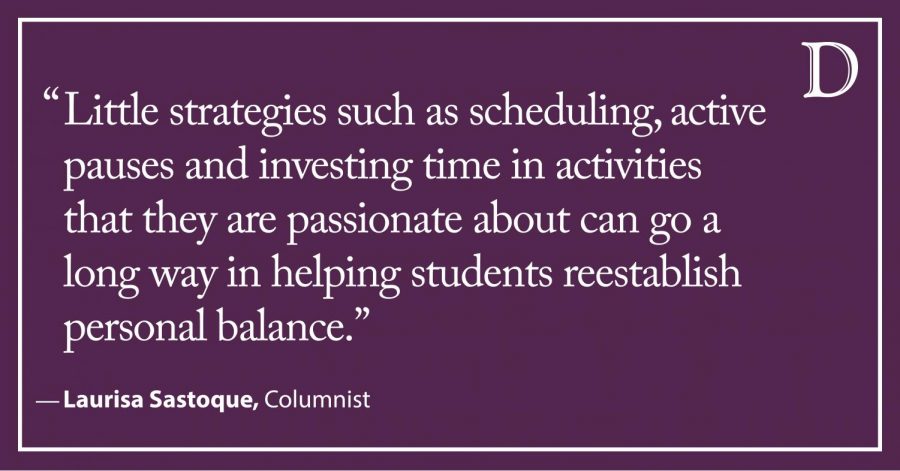Sastoque: Why students should focus on their wellness during confinement
April 30, 2020
If we conducted a survey on the most common conversation topics among students in the time of online learning, these topics would most likely include ruined sleep hours, struggles in classes and a general feeling of lethargy. Undoubtedly, some of these issues are directly linked to an experimental adaptation to technology, lower academic expectations and constant permanence in an environment not designed for knowledge acquisition.
However, the difficulties students face in this time also largely stem from students’ general disregard for their own wellness. The culture of “being too busy for self-care” is palpable in college campuses filled with professional all-nighters, caffeine-filled water bottles and uneaten breakfasts. These bad habits threaten to occur in students’ homes as well.
The truth is that students at top universities may perform stellarly when it comes to navigating the established educational system, but in doing so they tend to jeopardize their personal growth and wellbeing. And although universities, now more than ever, are implementing programs and resources to help students with their time management, self-awareness and interpersonal relationships, prioritization of destructive habits continues to be a problem in college campuses.
The problems of overachievers have perhaps faded in the time of the pandemic. With Pass/Fail grading, students find themselves less motivated and generally devoting less time to academics (with, of course, some exceptions). However, students continue to express issues with scheduling and adaptation, caused by educational stress in addition to stress caused by the world crisis.
A common effect that the new remote-learning format has created among students is an increase in procrastination habits. This stems from inhabiting a space filled with distractions and experiencing a schedule distorted by asynchronous courses.
What a lot of students don’t realize is that procrastination itself is also a form of self-destruction.
A learner’s drive and ability to find fulfillment in their work is highly dependent on their motivation and willingness to endeavor. If a student adopts bad lifestyle habits on top of losing their initiative, this contributes to an unhealthy state of mind that deepens feelings of anxiety and uncertainty.
It is completely valid to state that the increased detachment of students is also related to elements completely out of their control. After all, having to live through a pandemic is enough reason for a student to let go of self-restraints. However, I believe students should value their time in quarantine as an opportunity to revise their personal habits and behaviors.
This moment, when students are forced to spend more time alone with their thoughts and to lead a closer relationship with themselves, is the perfect one to ask the question: What is it that hampers their wellbeing? Is it deteriorating relationships with peers? A lack of structure to their daily lives? Feeling overwhelmed by deadlines and responsibilities?
Once a student has identified these factors, it is easier for them to design a course of action that addresses their main issues. Little strategies such as scheduling, active pauses and investing time in activities that they are passionate about can go a long way in helping students reestablish personal balance and attain some peace of mind in the midst of chaos.
From this angle, it is important for students to remember to view the (relative) relieved pressure of pass/fail grading and closure of activities not as a motivation depressant, but rather as an unexpected “down time” to work on personal growth and to reevaluate those bad habits that have become a part of student culture on college campuses.
Laurisa Sastoque is a Weinberg freshman. She can be contacted at [email protected]. If you would like to respond publicly to this op-ed, send a Letter to the Editor to [email protected]. The views expressed in this piece do not necessarily reflect the views of all staff members of The Daily Northwestern.


